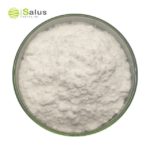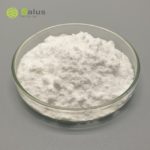
86-29-63699260 / +86-137-5995-3739

Sale@salusnutra.com


Product Name: Phytic Acid
CAS Number: 83-86-3
EINECS No: 201-506-6
Empirical Formula (Hill Notation): C6H18O24P6
Specification:99% By HPLC
Package:25Kg/Drum
Drum’s Size:36cm*36cm*52cm
Shelf Time:2 Years
What Is Phytic Acid?
Phytic acid is a natural antioxidant that is mainly found in grains, nuts, and seeds. Foods high in phytic acid include cereals, legumes, and certain vegetables.
People who have existing mineral deficiency should be mindful of the amount of phytic acid-containing foods they eat, and may want to consult with a dietitian or healthcare provider.
.
|
ANALYSIS |
SPECIFICATION |
|
Appearance |
Colorless to pale yellow or light brown viscous liquid |
|
Content |
50±2% |
|
Inorganic phosphorus |
≤0.02% |
|
Chloride |
≤0.02% |
|
Sulfate |
≤0.02% |
|
Calcium Salt |
≤0.02% |
|
Arsenic |
≤0.0003% |
|
Heavy metal |
≤0.003% |
What Is Phytic Acid Used For?
Phytic acid is an antioxidant. Antioxidants help to remove free radicals from cells in the body. These are the highly reactive byproducts of cellular metabolism. Left unchecked, free radicals can contribute to the development of certain diseases and cancer.
Foods containing phytic acid are nutrient-dense, overall. For most people, these foods are important to include in a healthy and well-balanced diet.
Cancer
Studies have shown phytic acid may protect against certain cancers. Phytic acid may be particularly protective against colon cancer by suppressing oxidative damage to intestinal cells.
Oseoporosis
Studies have shown that phytate consumption appears to have a protective effect against osteoporosis. Studying postmenopausal women, those with lower amounts of urinary phytate (indicating less in the diet) were at higher risk of bone loss and hip fracture than women with higher urinary phytate (indicating more in the diet)
Another study found the differences were more marked when comparing women who had greater risk factors for osteoporosis. For these people, a diet higher in phytate may be even more important to help reduce their risks of bone loss and fracture.

Send Message +
© 2021 www.salusnutra.com All Rights Reserve